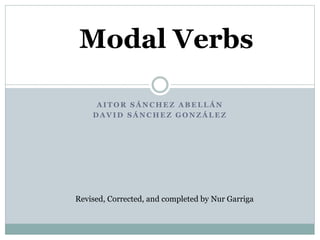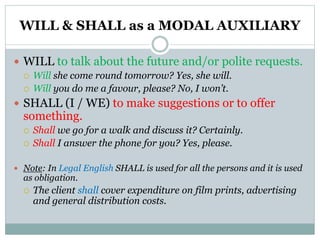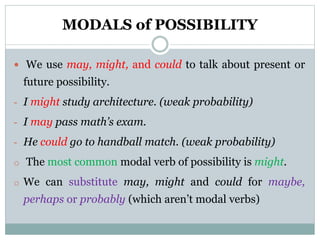This document provides an overview of modal verbs in 3 paragraphs:
It defines modal verbs as auxiliaries that add meaning to sentences and lists common modal verbs like can, will, should. It explains they are used before infinitives and accompany the main verb.
The second paragraph discusses specific modal verbs like will and shall for making suggestions or requests. It also covers would for conditional and past situations.
The third paragraph addresses modal verbs for abilities, permissions, possibilities, advice, obligations, prohibitions, and certainty. It explains how they are used in different tenses and situations. The document concludes with a section on using modal verbs with perfect infinitives to discuss past situations.















